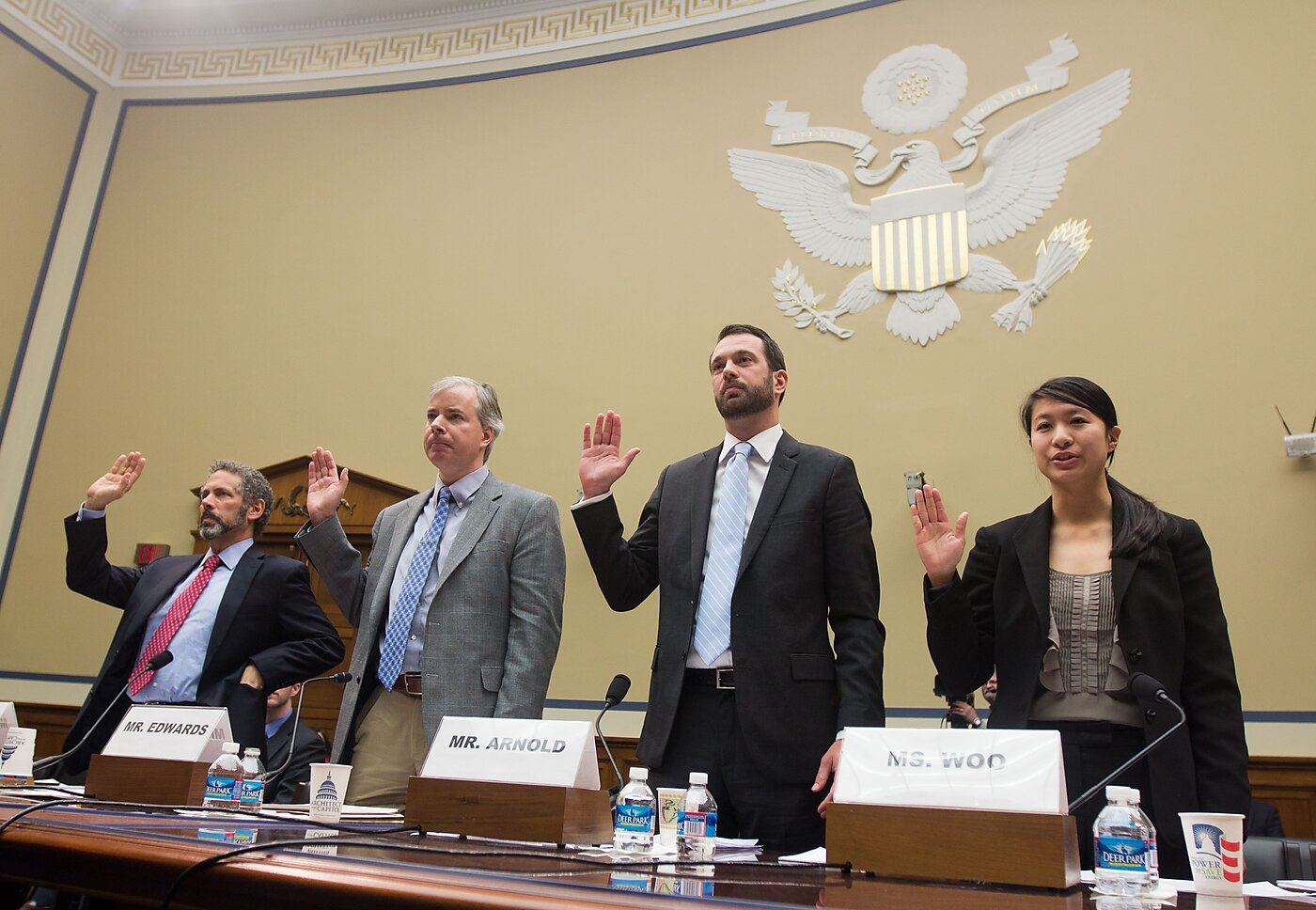In the picture, I am swearing to tell the truth about wasteful spending to the House Oversight Committee last week. And the truth is that the government does huge amounts of it.
In my testimony, I described why the federal fiscal outlook is worse than shown in official long-range projections. And I discussed why federal “waste” is a broader problem than simple screw-ups, such as an unused $300 million Pentagon blimp.
The federal government has been wasting money since the beginning of the Republic, and I listed 15 reasons why that is the case. I concluded with some proposed reforms, including privatization and chopping aid to the states.
Senator Tom Coburn also testified at the hearing. Coburn’s staff puts together a very nice annual compilation of wasteful projects, and it publishes many detailed reports on proposed reforms to federal agencies.
Why is Coburn just about the only member of Congress who uses his staff to dig into the budget, critique programs, and inform people about where savings can be found? Every congressional office should be doing that. If they did, Congress might finally be able to put together a package of major budget savings.
Also testifying was Tom Schatz of CAGW, Brandon Arnold of NTU, and Jaimie Woo of PIRG. For years, Tom’s group has been informing the public about thousands of wasteful projects buried in the massive federal budget.
Brandon and Jaimie have released a study describing billions of dollars of savings from cuts that should appeal to both liberals and conservatives. Brandon is a former director at Cato, and so Cato’s small-government views were well-reflected at the hearing.
My homework assignment for members of Congress is to task their staffs with digging through the budget and producing lists of, say, 20 substantial cuts to spending. Publish those proposed savings, and use media opportunities to highlight them, as Coburn does. That would at least start a dialog about budget trade-offs.
All federal programs impose burdens on taxpaying families, and so members of Congress have a duty to weed out low-value agencies, programs, and activities on an ongoing basis.
(I completed the homework assignment here).

